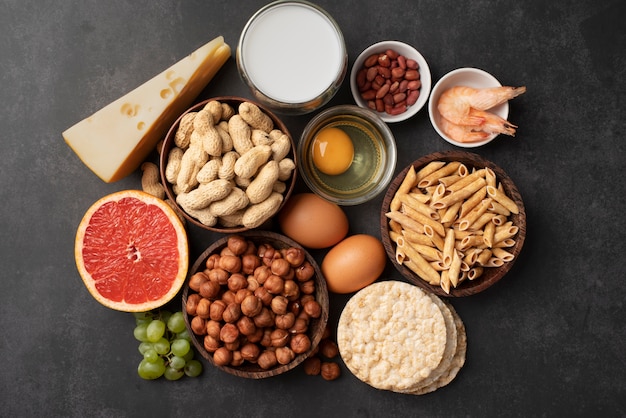
Dealing with eczema? Certain foods might help reduce the inflammation that causes dry, itchy, and flaky skin, according to nutritionist Olga Hamilton. Eczema, a chronic skin condition, makes the skin dry, itchy, and sore. It affects about one in five children and one in twelve adults in the UK.
While your diet might not cause eczema, certain foods can trigger flare-ups. Research shows that dietary factors can worsen eczema, with reactions happening quickly after food exposure. Here’s how you can manage your eczema through diet:
1. Probiotics:
Probiotics are live microorganisms that support your immune system and curb harmful bacteria growth in your gut. The most common types are Lactobacillus and Bifidobacterium, which are beneficial for gut health. Increasing these good bacteria can protect against eczema by reducing inflammation and immune dysfunction. You can find these probiotics in foods like yogurt, kefir, raw cheese, fermented soy products (natto, tempeh, miso), kombucha, and fermented vegetables (sauerkraut, kimchi). Try adding a bit of these foods to your daily diet. For example, add a tablespoon of sauerkraut to your salad, enjoy 200 grams of yogurt for breakfast, or have some water kefir or kombucha between meals.
2. Prebiotics:
Prebiotics are fibers that feed the good bacteria in your gut, boosting their numbers. They are found in foods like beans, Jerusalem artichokes, leeks, shallots, chicory, asparagus, mushrooms, garlic, and onions. Consuming these helps improve gut health, which can reduce eczema symptoms. Aim for three portions of these veggies daily, where one portion is 80 grams for vegetables and 120 grams for cooked legumes.
3. Liver Health:
Poor liver function can be a driving factor for eczema. The liver filters blood from the digestive tract, but when it’s overloaded with toxins from food allergies, it can’t do its job effectively. These toxins then exit the body through the skin, causing inflammation and eczema. Eating cruciferous vegetables (like cabbage, kale, broccoli, brussels sprouts) can help the liver produce detoxifying enzymes, reducing inflammation and supporting liver health. Aim for two portions of these veggies daily, prepared however you like.
4. Turmeric:
Turmeric, a spice common in Asian food, contains curcumin, known for its anti-inflammatory and antioxidant properties. It helps restore glutathione levels, strengthening your immune system and easing eczema symptoms. Including turmeric in your diet can reduce symptoms like scaling, thickening, and itching.
5. Vitamin D:
Vitamin D is vital for many bodily functions and helps reduce inflammation. It’s produced in response to sun exposure and can be found in foods like wild oily fish, enriched mushrooms, and grass-fed cow’s butter. Research shows that people with eczema often have lower levels of vitamin D. This vitamin supports the immune system and reduces inflammation. Given its common deficiency, ensuring adequate vitamin D intake is crucial for managing eczema.
By incorporating these dietary changes, you can help manage eczema and reduce its symptoms.

